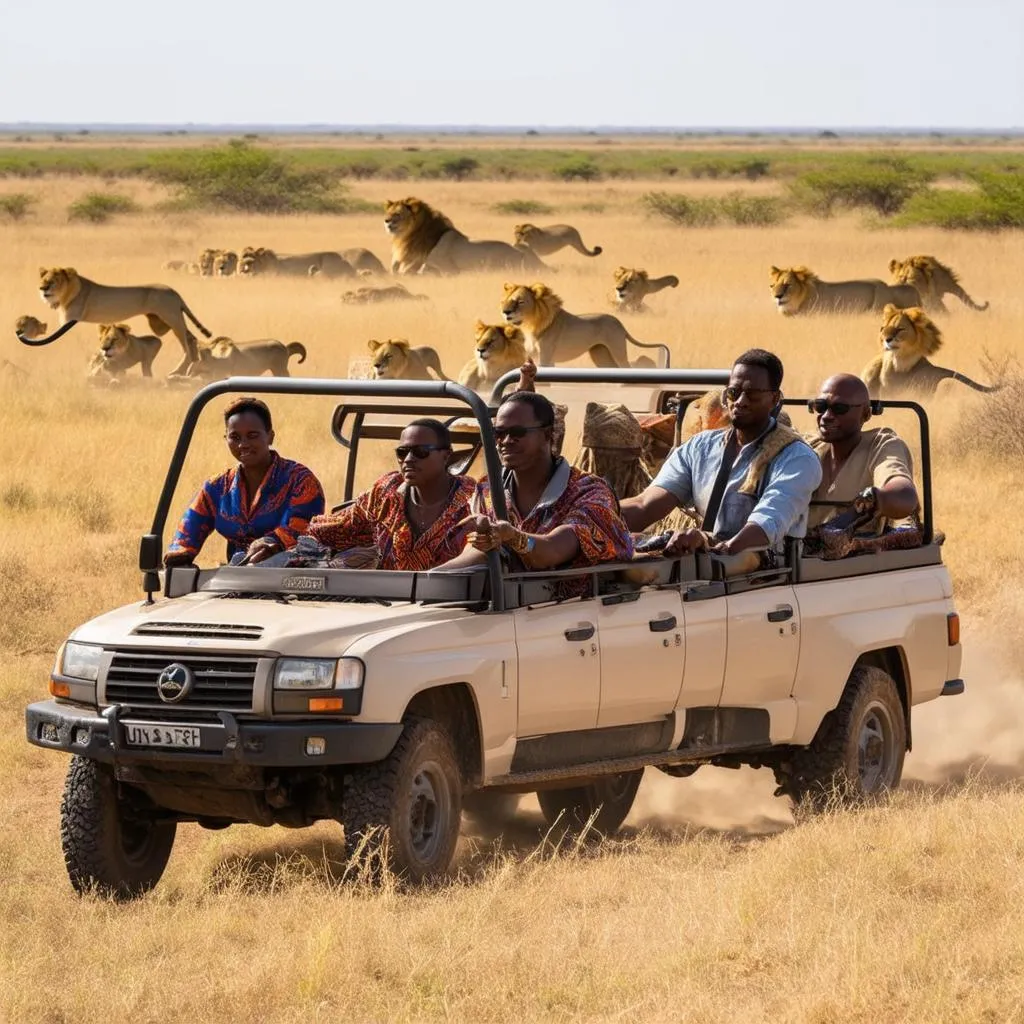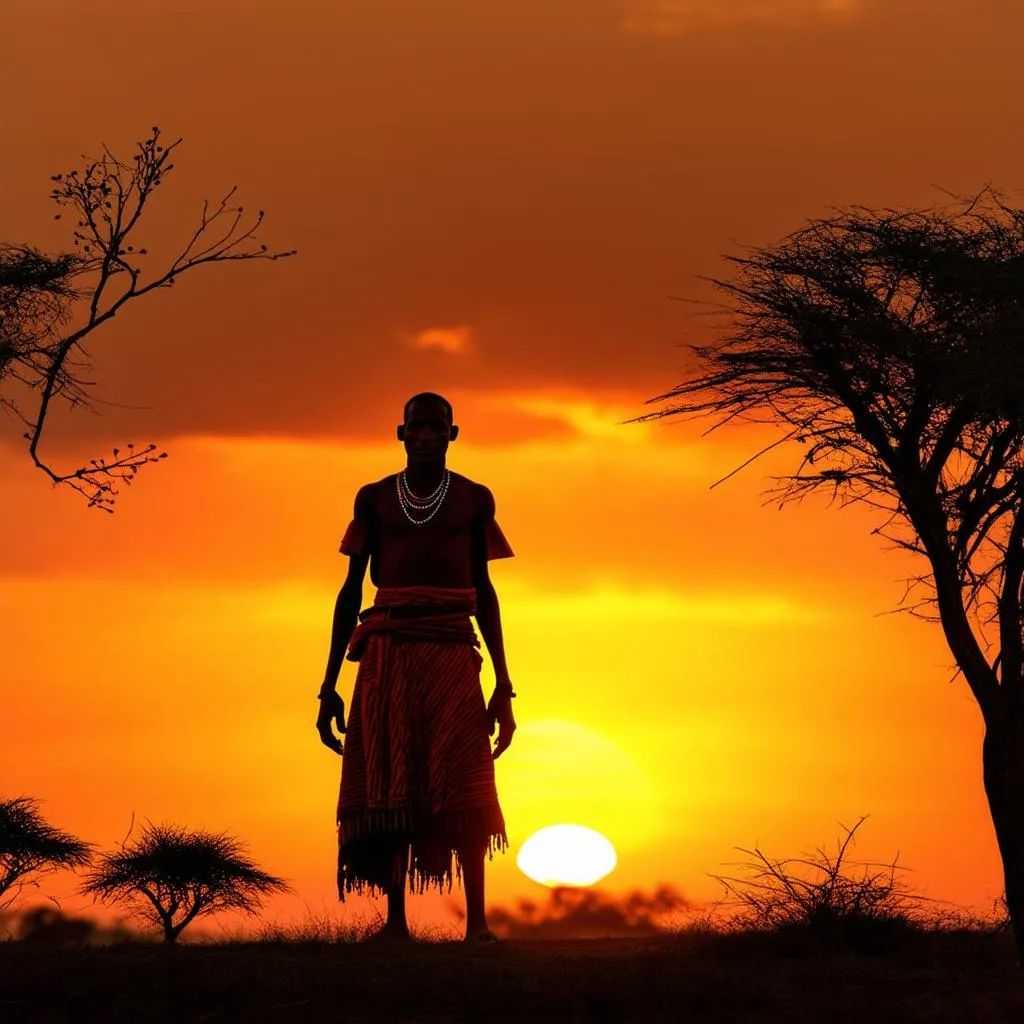Have you ever dreamt of witnessing the Great Migration across the African savanna, the sun setting over Mount Kilimanjaro, or the vibrant culture of the Maasai people? Traveling to Kenya from the USA is an adventure waiting to happen, but before you trade the hustle and bustle of New York City for the plains of the Maasai Mara, let’s ensure you have everything you need.
Preparing for Your Kenyan Adventure
Planning a trip to a new continent can seem daunting, but with a little preparation, you’ll be sipping Dawa cocktails on Diani Beach before you know it. Here’s what you need to make your dream Kenyan safari a reality:
1. Essential Documents: Your Ticket to Kenya
- Passport: Ensure your passport is valid for at least six months beyond your intended stay in Kenya.
- Visa: U.S. citizens require a visa to enter Kenya. You can apply for a single-entry visa online (e-Visa) or at the Kenyan Embassy in Washington, D.C.
- Travel Insurance: While not mandatory, travel insurance is highly recommended to cover any unforeseen events like medical emergencies or trip cancellations.
- Flight Tickets and Itinerary: Keep digital and printed copies of your flight confirmations, accommodation bookings, and a rough travel itinerary.
2. Packing Smart for the African Plains
- Clothing: Pack light, breathable clothing in neutral colors for safari activities. Don’t forget a warm fleece for cool evenings and a wide-brimmed hat for sun protection.
- Comfortable Walking Shoes: You’ll be doing a fair bit of walking, whether exploring local markets in Nairobi or tracking lions on the savanna.
- Insect Repellent: Protect yourself from pesky mosquitoes, especially in the evenings, with a strong insect repellent containing DEET.
- Sunscreen: The African sun can be intense. Pack a high-SPF sunscreen to avoid sunburn, especially at higher altitudes.
- Reusable Water Bottle: Stay hydrated by carrying a reusable water bottle and refill it at your accommodation or designated water stations.
 Kenya Safari Adventure
Kenya Safari Adventure
3. Money Matters: Kenyan Shillings and Beyond
- Currency: The official currency in Kenya is the Kenyan Shilling (KES). It’s advisable to exchange some US dollars for shillings upon arrival at the airport or at authorized currency exchange bureaus.
- Credit Cards & Cash: While major credit cards are accepted in larger establishments, it’s best to carry some local currency, especially for smaller shops, markets, and tipping.
4. Health Precautions: Stay Healthy on Your Trip
- Vaccinations: Consult your doctor about recommended vaccinations for Kenya, including Hepatitis A, Typhoid, and Yellow Fever.
- Malaria Prevention: Malaria is present in some areas of Kenya. Consult your doctor about anti-malarial medication and take necessary precautions like using mosquito nets and wearing long sleeves in the evenings.
5. Respecting Kenyan Culture and Customs
- Language: While English is widely spoken, learning a few basic Swahili phrases will enhance your interactions with locals.
- Bargaining: Bargaining is common practice in Kenyan markets. Be respectful and polite when negotiating prices.
- Photography: Always ask for permission before taking photographs of people, especially in rural communities.
Planning Your Kenyan Itinerary
Kenya offers a diverse range of experiences. Here are some must-see destinations:
- Maasai Mara National Reserve: Witness the awe-inspiring Great Migration of wildebeest and zebra.
- Amboseli National Park: Marvel at majestic elephants with Mount Kilimanjaro as a backdrop.
- Diani Beach: Unwind on pristine white sand beaches and enjoy water sports like snorkeling and diving.
- Nairobi: Explore the vibrant capital city, visit the Karen Blixen Museum, and experience the Giraffe Centre.
 Maasai Mara Sunset
Maasai Mara Sunset
Frequently Asked Questions
Q: When is the best time to visit Kenya?
A: The dry seasons (June to October and December to March) are generally considered the best time for wildlife viewing in Kenya.
Q: Is it safe to travel to Kenya?
A: Like any destination, it’s important to exercise caution and be aware of your surroundings. Stick to well-lit areas, avoid displaying large amounts of cash, and follow the guidance of your tour operators.
Q: What are some ethical considerations for safari tourism in Kenya?
A: Choosing responsible tour operators who prioritize conservation and community development is crucial. Avoid giving money or sweets to children, as it can create a dependency cycle.
Embark on Your Kenyan Adventure
Traveling to Kenya is a journey of a lifetime. By planning ahead, respecting local customs, and embracing the spirit of adventure, you’ll create memories to cherish long after you return home.
For more travel inspiration and resources, visit travelcar.edu.vn and start planning your unforgettable Kenyan adventure.